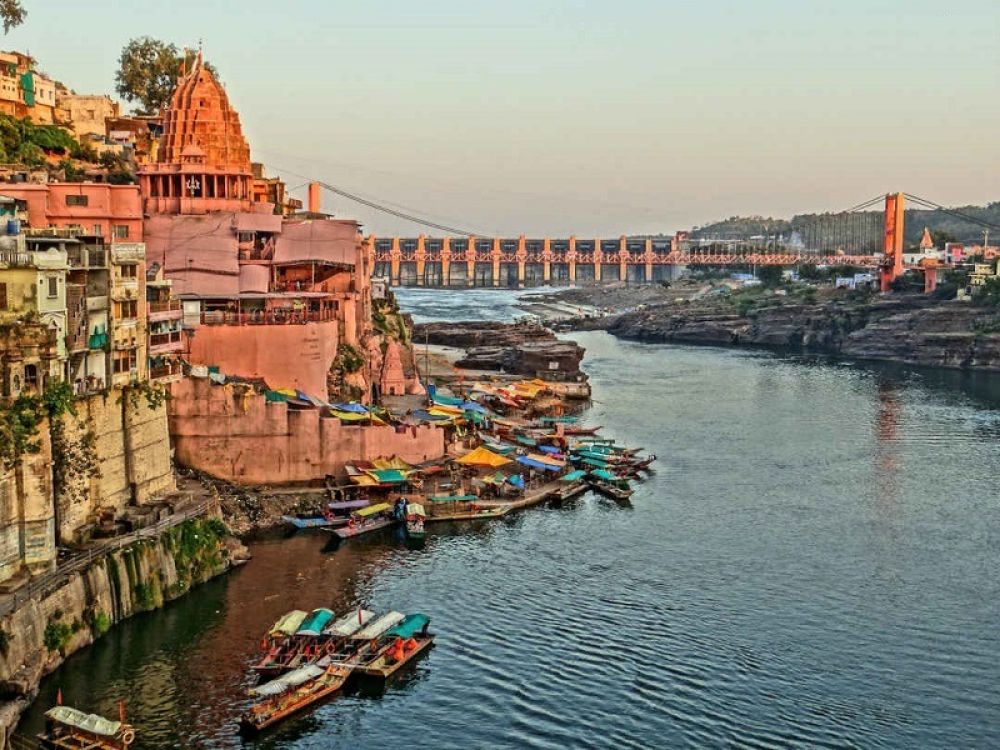

Located on the banks of the River Narmada in Madhya Pradesh, India, Omkareshwar is a serene pilgrimage destination that attracts scores of devotees and tourists each year. The town is famous for the Omkareshwar Jyotirlinga temple dedicated to Lord Shiva, one of the twelve revered Jyotirlingas scattered across India.
The history of Omkareshwar is deeply intertwined with the Hindu mythology and the sacred river Narmada. According to legends, the island, shaped like the sacred Hindu symbol 'Om', has been a divine ground for worship and penance since ancient times. Throughout history, the confluence of the Narmada and the Kaveri rivers has been a site of continuous spiritual significance, drawing hermits and scholars to its shores.
Tourism in Omkareshwar started flourishing with the establishment of its many temples, especially from the time India began promoting the 'Incredible India' campaign, which brought this holy place into the limelight. The government, recognizing the potential of Omkareshwar, has taken numerous steps to develop infrastructure and provide facilities to cater to the needs of tourists and pilgrims.
Over the years, accommodation options have grown from basic dharamshalas (rest houses) to comfortable hotels and guesthouses. The connectivity to Omkareshwar has been greatly improved with regular bus services from major cities and the nearest railway station, Omkareshwar Road, located about 12 km from the temple town.
In recent years, the efforts to promote Omkareshwar have pivoted from merely a pilgrimage destination to a center of spiritual wellness and yoga retreats. The latest trend in Omkareshwar's tourism industry includes the promotion of eco-friendly tours emphasizing the pristine beauty of the Narmada River and the surrounding natural landscapes. Also, adventure tourism is gaining traction with activities like river rafting and trekking drawing younger crowds.
Several religious festivals and fairs, like Maha Shivratri and Narmada Jayanti, have become significant events that witness a massive influx of devotees. These occasions offer a glimpse into the customs and traditions of the area, thus providing a rich cultural experience to visitors.
The future of tourism in Omkareshwar looks bright with continuous efforts towards sustainable development. Plans are underway to enhance visitor experiences by conserving the natural environment while accommodating tourists. The focus on augmenting spiritual tourism, cultural immersion programs, and responsible travel is expected to contribute to the longevity of Omkareshwar's appeal as a tourist destination.
To conclude, Omkareshwar's blend of divinity, history, and natural beauty continues to captivate visitors. With its steady growth and adaptation to the changing trends in travel and tourism, this sacred town is poised to remain a cherished spot on India's spiritual tourism map for years to come.